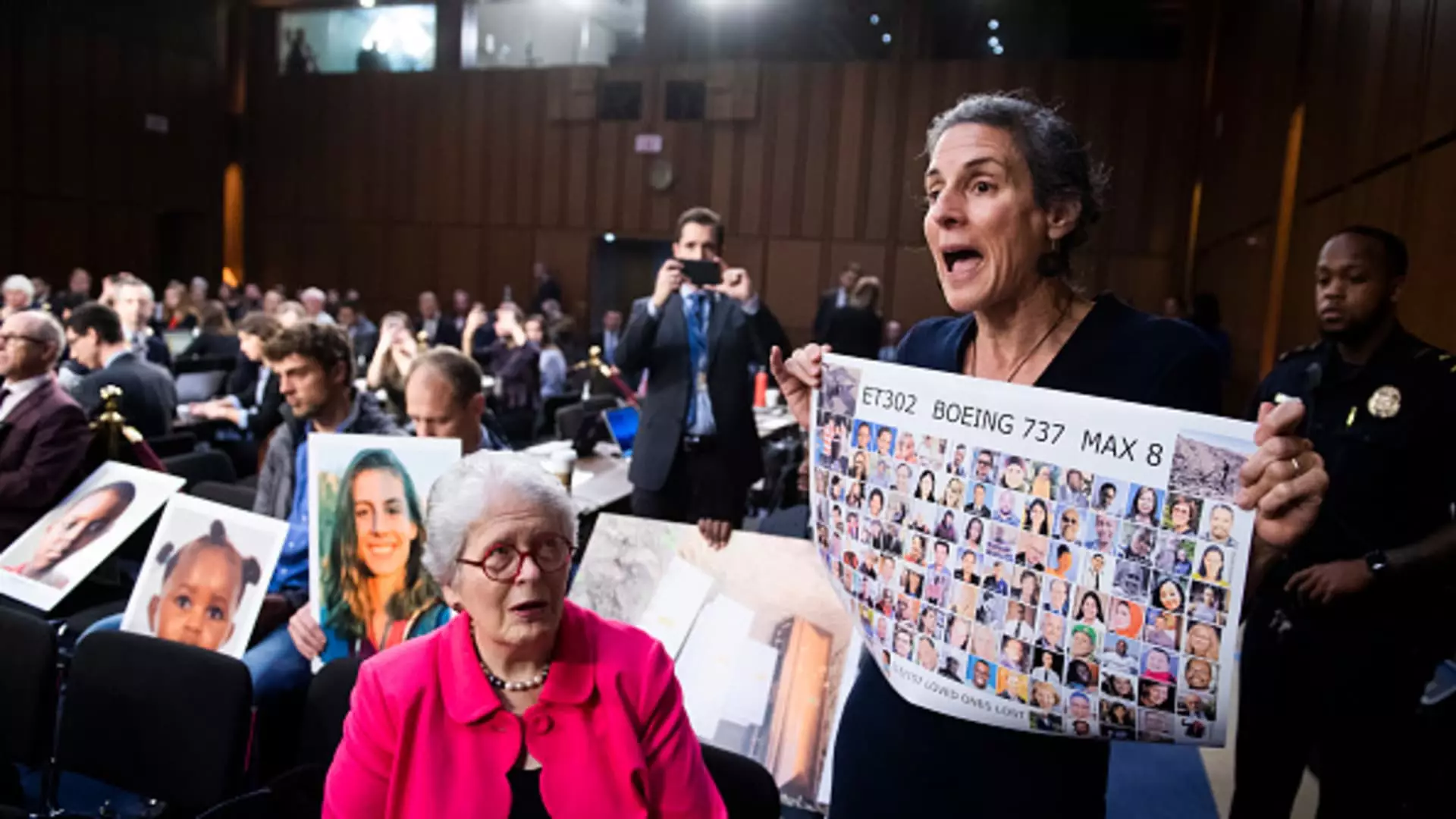The recent legal proceedings surrounding Boeing highlight a stark realization of accountability in the aviation sector following the tragic crashes of its 737 Max aircraft. A federal judge’s rejection of Boeing’s proposed plea deal, linked to criminal fraud charges, accentuates not only the technicality of legal agreements but also the broader implications for corporate ethics and public trust. In the aftermath of two catastrophic accidents—one involving Lion Air in October 2018 and the other Ethiopian Airlines in March 2019—where all 346 passengers lost their lives, the scrutiny on Boeing has intensified, further complicating the company’s path toward redemption.
U.S. District Judge Reed O’Connor’s ruling reflected a deeper concern over the appointment of a government monitor as part of the plea agreement. His apprehensions centered on issues surrounding diversity, equity, and inclusion policies. The judge’s point was pressing: the perception of fairness and competency should dominate the selection process, especially in a case of such profound impact. O’Connor raised a vital contention about whether race-based factors would influence the actions of the monitor, emphasizing the urgent need for impartial oversight in a company fraught with moral failings.
The implications of Boeing’s legal issues extend far beyond corporate accountability; they delve into the realm of public trust and social responsibility. Family members of the crash victims voiced their discontent with the initially proposed deal, labeling it a “sweetheart deal”. Their frustrations underscore a common sentiment: that corporations should not evade culpability through bargain agreements, especially when lives are lost due to negligence.
Erin Applebaum, representing victims’ families, pointedly criticized the plea arrangement. Her advocacy for a more stringent response from the Department of Justice (DOJ) illustrates the growing demand for justice that is both transparent and robust. The attorney’s appeal for a renegotiated deal emphasizes the need to restore faith in regulatory systems that should ideally protect the public rather than enable corporate wrongdoing.
The legal landscape concerning corporate accountability is increasingly complex, with cases such as Boeing’s underscoring the necessity for reform. As O’Connor astutely noted, there remain ambiguities regarding how Boeing has allegedly breached prior agreements. This lack of clarity can significantly undermine the justice system’s efficacy when dealing with massive corporations like Boeing, who possess considerable resources to negotiate leniency.
Moreover, this plea deal was designed to save Boeing from a full trial, allowing the company to focus on recovery amidst ongoing safety concerns, notably highlighted by a recent midair incident involving a detached door. While the company may argue that such arrangements permit operational stability, the broader question remains: at what cost does this stability come? The conditions surrounding the plea deal and its ultimate rejection reveal a legal and ethical battleground where public safety must be prioritized above corporate profits.
Ultimately, the turbulence surrounding Boeing’s plea deal raises important questions about the future of corporate governance and legal accountability. The concerns highlighted by Judge O’Connor and advocates for the victims reflect a pressing demand for change in how large corporations are held accountable when they violate regulations that guarantee public safety. The expectation that oversight should be grounded in merit rather than influenced by social or political considerations is becoming a rallying cry for advocates of ethical corporate behavior.
As Boeing navigates this precarious legal terrain, the company faces a pivotal moment in reshaping its image, operational practices, and commitment to safety. It is essential that the DOJ reconsiders its approach to corporate penalties, ensuring that they reflect the severity of the offenses committed. The outcome of these proceedings will inevitably set a significant precedent for how similar cases are handled in the future, and it is crucial that justice prevails—not only for the victims’ families but also for the integrity of the aviation industry as a whole.


Leave a Reply